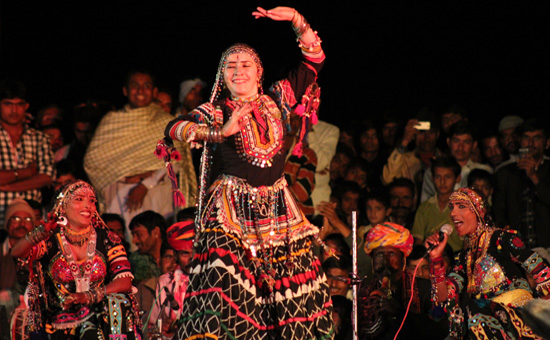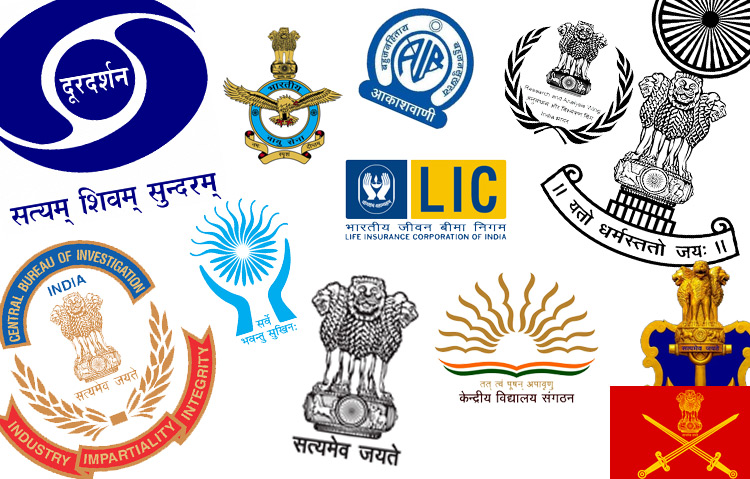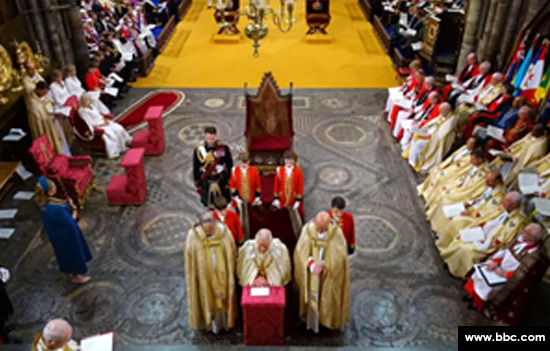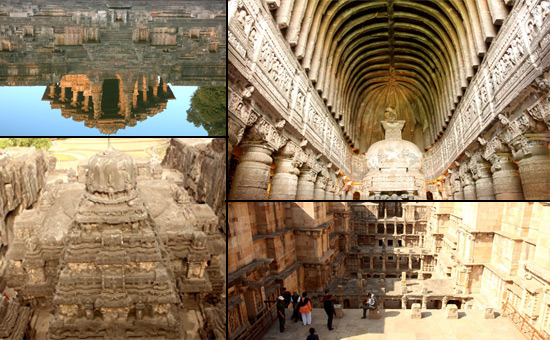- FAQ includes origin, meaning and egs. of
Secularism Indian ishstyle? Equality before Law in India is a myth? Are USA/UK
secular? Christian traditions during Charles Coronation!
A earlier article, What is Hate Speech, referred to a April 2023 order of the Supreme Court which said that, “The two judges termed hate speech as, “a serious offence capable of affecting the secular fabric of the country.” Reference Hindustan Times
and Business Standard, May 1, 2023.
Has the word secular been defined in the
Indian Constitution? NO.
Since the word secular is referred to by courts, the media and politicians 24 by 7, I decided to ascertain its origin and meaning in the Indian context. For simplicity it is presented in a FAQ format.
1. Who brought the concept of
Secularism to India?
British!
They also introduced the word Minority which the Constitution does not define. The term Scheduled Caste was introduced by the British in the 1930’s and Scheduled Tribe around the time when the Constitution was adopted in 1950. Read Who are Scheduled Tribes? The word Dalit finds no mention in the Constitution. Read History of word Dalit
2. Where did Secularism
originate and why?
Secularism has its origin in Europe.
In Europe the church, controlled education/ property etc, became so powerful that even the king felt oppressed. So secularism meant separation of the church and state with intent to curb the influence and power of the church. Read Secularism, Past and Future (Ohio University)
According to Why Nehru
dropped and Indira included the S-word in the Constitution
published by the Indian Express, “The word ‘secularism’ is known to have originated in late medieval Europe. “Secularism, the theory that governments ought to have no religious connection, nor indeed anything to do with matters of religious belief or ritual, is manifestly a Western intervention, specifically a product of the Protestant Reformation and the Enlightenment,” writes historian Ian Copland. Majority of the makers of modern India,
shaped as they were, by European thoughts and practices, were ardent supporters
of secularism as well.”
The situation in India was
different. Sanatan Dharma was neither governed by a monolith organisation like
the church nor did it own property and control the state. Thus, the need for
secularism never arose.
Thus, as a concept secularism
is as alien to India as a three-piece suit is to the likable Lalu Prasad Yadav
(no offence meant).
For more on secularism read Pages 83 to 95
in India that is Bharat, by J Sai
Deepak.
3. Was India secular before
the British came and promulgating the Constitution?
Yes.
Long before secularism entered
popular discourse, the followers of dharma (read as Hindus,
Buddhists, Jains and Sikhs; the Indian Constitution includes all Indic dharmic traditions
as Hindus for the purpose of personal law) gave refuge to those who were persecuted in other countries for e.g. Parsis, Jews and a
body of Christian immigrants.
Indic thought permits multiple ways to
achieve self-realization unlike others and allows others to co-exist. Swami
Vivekananda said in 1893 Chicago address, “As the different streams having their sources in different places all mingle their water in the sea, so, O Lord, the different paths which men take through different tendencies various though they appear, crooked or straight, all lead to Thee.”
Read Comparing Indic vs. Abrahamic faiths–A Primer
4. Does the word Secularism find
mention in the 1950 Constitution?
No.
The founders of the Constitution deemed it appropriate to imply the concept of secularism without spelling out its meaning. The word ‘secular’ was made part of the preamble of the Indian Constitution during the Emergency (1975-77). However, the word was left undefined even then.
 To learn Kalbelia dance, this Hungarian Muslim adapted to Indian culture. Now
excels in this dance form of Rajasthan. 2013.
To learn Kalbelia dance, this Hungarian Muslim adapted to Indian culture. Now
excels in this dance form of Rajasthan. 2013.
5. Has any government in post
independent India try to define Secularism?
Yes.
When the Janata Party came to power in 1977 an attempt was made to define ‘secular republic’ to mean a ‘republic’ in which there is equal respect for all religions’. The Janata government had a majority in the Lok Sabha but was in a minority in the Rajya Sabha where it was voted down by the Congress.
6. Even though the
Constitution did not define secularism what was it in practice?
 Motto in Logos of government
of Indian institutions.
Motto in Logos of government
of Indian institutions.
Difficult to say because there are two
contrary strands.
A review of the motto within the logos of the governments institutions, established during the 1950’s and 1960’s, show they were inspired by the Vedas, Upanishads and Puranas. So, in spite of the majority of the makers of modern India being influenced by European thoughts and practices whilst drafting the Constitution, in practice the institutions that were found during the 1950-60’s had their Mottos sourced from Indic thought.
Thus, they might be construed to be
supporters of the European word secularism, but were grounded in the Indic
thought.
Read What are mottos in logos of Indian institutions
Conversely, they introduced articles in the Constitution that gave Minorities (read Christians and Muslims) special rights for e.g. Articles 29 and 30. Plus, in their wisdom they did not introduce Uniform Civil Code then or reforms in Muslim and Christian Personal Laws.
Read How Hindu rights have been damaged by Article 28 and
the RTE Act And Comparing Inheritance Laws for Hindu and Muslim Women
Probably, the Constitution makers were
guided by the Christian concept of Minority. Here again, they did not define
the word Minority in the constitution.
Read Who is a Minority and Constitutional Debates Revisited on reservations for
minorities
7. What about Supreme Court
on Secularism?
Here is an excerpt from the Supreme Court judgment on the Ayodhya Acquisition Act, 1993. Former Chief Justice A M Ahmadi said: “Notwithstanding the fact that the words socialist and secular were added in the preamble of the Constitution in 1976 by the 42nd amendment, the concept of secularism was very much embedded in our constitutional philosophy. The term ‘secular’ has advisedly not been defined presumably because it is a very elastic term not capable of a precise definition and perhaps best left undefined. By this amendment what was implicit was made explicit.”
Read Secularism and Constitution, an analysis
Interestingly, secularism has been
interpreted by the Apex Court as a part of basis structure of the Constitution
and referred to as equal treatment of all religions which is not the case in
reality.
Also
read Secularism and Justice
For an interesting SC order on Secularism
read Civil Appeal No 7095/2022 i.e. the Hijab matter. It quotes SC on
secularism as stated in numerous orders.
8. Examples of secularism in
India
Secularism means extra benefits to minorities. No Constitution must be treating the majority community like this.
1. Hindus are denied equal human rights e.g. right to manage their temples but Muslims and Christians can manage their places of worship and retain hundi collections (they do not become part of the State Treasury like in temples of some states).
Read Laws that deny Hindus human rights
Supreme Court defines Secularism as ‘equal treatment to every religion’. Firstpost 2016 Nothing could be further away from the truth. Read
Supreme Court has always upheld secularism
Word Minority not defined in the Indian Constitution. Sikhs rule the state of Punjab but are a minority under Articles 29 and 30 the Constitution. Matter pending in Supreme Court for years.
2. The Government of India
provides Scholarships to Minorities. Some
details.
Academic
Year 2021-22 Pre-Matric Rs 1,329 crores.(1129 cr) , Post-Matric Rs 469 crores.( 501 cr) and Professional
Courses Rs 353 crores (381 cr).
Figures in brackets are for year 2014-15. Total
scholarship in year 2021-22 Rs 2,151 crores and 2014-15 Rs 2,011 crs. Hindus?
Here Minority includes Muslim, Buddhist,
Jain, Sikh, Christian. Under the Income-tax Act and Hindu Marriage Act
Buddhist, Jain and Sikhs considered Hindus.
Do you know if Muslim majority Jammu and Kashmir or Christian majority Nagaland/Mizoram/Meghalya provided similar scholarships for Hindus?
3. The
Waqf Board is subject to a different law and receives grants from the
government but Hindu religious affairs are controlled by the government. Waqf property is dedicated to The Almighty in supposedly a Constitution driven state? Only Muslims are by law allowed to become CEO’s of the State Waqf Boards. Such Boards can fund religious education. Hindus!
Read FAQ
on Waqf Board
4. Hindu
Personal Laws were reformed by government but Muslim/Xtan! Nehru and
Ambedkar were at the forefront of introducing reforms for Hindus, why did they
leave the Muslims out? Thus, in matters of Inheritance Hindu girls are entitled
to an equal share of property while Muslim women get less. Equality of law!
Read Comparing inheritance laws for Hindu and Muslim women
5. There are different tax laws for different religions. Scheduled Tribes who
have converted continue to be treated as ST for the purposes of government
benefits and in the case of the northeast ST, even post conversion, do not pay
income-tax.
Read Tax laws should be same for all Indian citizens
6. In 1993, SC ordered payment of salaries to Imams
Has similar orders been passed for payment of salaries to Granthis, Monks and Hindu priests?
Read All you wanted to know about WAQF
7. In India when Hindu organizations carry
out non-violent protest marches against their community girls being targeted by
another community, these protests are termed as hate speech and considered by
some as secularism being in danger.
Hindus must not protest
even when hurt by actions of another or their traditions being mocked at can be
construed to be 2023 ka secularism.
9. Does secularism mean the
state does not have a religion?
The U.K. and USA are clear they are
Christian nations (see below). Indians
are confused so India is forever under playing Indic faiths and Dharma.
According to this article in The
Telegraph, “Justice Joseph cited the apex court judgment in M.P. Gopalakrishnan Nair vs. State of Kerala, 2005, which declared that “(i) The Constitution prohibits the establishment of a theocratic State. (ii) The State is not only prohibited to establish any religion of its own but is also prohibited to identify itself with or favouring any particular religion. (iii) The secularism under the Indian Constitution does not mean constitution of an atheist society but it merely means equal status of all religions without any preference in favour of or discrimination against any one of them.”
Before
Muslim invasions when India was only Indic, it did not become a theocratic
state as the West understands, so how can it become one today when population
of Hindus is 75-79% is worth pondering over!
Equal treatment of all religions
in India is a myth.
Read What is Hindu Rashtra
10. How does secularism
operate in the U.S.A?
 President B Obama takes oath as President with one hand on the Holy Bible.
President B Obama takes oath as President with one hand on the Holy Bible.
A detailed answer would require
a separate article. Suffice to say that the President of USA take oath with one
hand on the Holy Bible.
11. How does secularism
operate in Germany?
A detailed answer would require
a separate article. Suffice to say that Christians in Germany and some other
European nations pay a tax on their income to the church. This is akin to
Hindus paying a tax to the Shankaracharya or the sadhu akhadas,
the sant samaj!
Would you call the U.S.A. and Germany secular? The word secular does not exist in the Muslim world.
12. How does secularism
operate in England, the country that exported secularism to India?
A.
In England the king or queen is the head of state and church. Since being head
of state is the equivalent of the India President it is like saying that
President Pranab Mukherjee is head of the Vishwa Hindu Parishad.
B. 26 priests are nominated to the House of Lords, our Rajya Sabha. “As senior members of the Church of England, which is the established church, some bishops are entitled to sit in the House of Lords. The Archbishop of Canterbury, the Archbishop of York, the Bishops of London, Durham and Winchester and 21 other bishops in order of seniority together form the Lords Spiritual.” Source
“They read prayers at the start of each daily meeting and play a full and active role in the life and work of the House. The official proceedings of the House cannot begin until prayers have been read.”
This is like saying that 26 prominent
Pandits from Kashi, Sringeri, Kanchipuram, Sivasagar and Badrinath/Kedarnath
are nominated to the Rajya Sabha and chant Mantras before every session starts.
“The Archbishops of Canterbury and York and the Bishops of London, Durham and Winchester are ex-officio members of the House of Lords. The remaining 21 places are occupied by a mixture of those who are longest-serving as bishops of English dioceses, and those who qualify under the Lords Spiritual (Women) Act 2015.” Source
The
26 members belong to the Church. Does anything like this happen in Hindu
majority India? No.
13. What about Prince Charles’s coronation?

According to this report in CBS News, “King Charles has been crowned by the Archbishop of Canterbury, Justin Welby. Before placing the crown on King Charles' head, the Archbishop (he is the Chief Religious Figure in the Church of England and head priest) said: "King of kings and Lord of lords, bless, we beseech thee, this Crown, and so sanctify thy servant Charles, upon whose head this day thou dost place it for a sign of royal majesty, that he may be crowned with thy gracious favour and filled with abundant grace and all princely virtues; through him who liveth and reigneth supreme over all things, one God, world without end. Amen." After crowning King Charles, he said "God save the King!" King Charles will then be anointed with holy oil from Jerusalem by the Archbishop of Canterbury, who will pour the oil onto a spoon and anoint the monarch's hands, head and breast.”
Note that God is a Christian concept. Read What is the concept of God in Christianity and
Sanatana Dharma
The coronation took place at Westminster-abbey, the royal church and not the equivalent of India’s Rashtrapati Bhavan. King Charles was sworn as king by a Christian priest. India’s President is sworn in by the Chief Justice of India. The President’s head is not anointed with holy oil.
Anyone with doubts that the U.K. is a Christian country was laid to rest during the coronation. I am not against the process of coronation or traditions followed but just saying.
Would you call the U.K. communal
or secular?
 There is more to India than the Taj. In Ellora, Hindu-Buddhist-Jain Caves co-exist.
There is more to India than the Taj. In Ellora, Hindu-Buddhist-Jain Caves co-exist.
Food for Thought
One, how relevant is the Christian concept
of Secularism to Indian culture, ethos, identity and practice?
Read Hindus cannot be governed by the Christian concept of
religious denomination
Two, since our Constitution is borrowed from the West is it time to replace foreign concepts with
Dharmic ones. After all the SC logo is, ‘Yato dharma tato Jaya’; where there is dharma, there is victory.
India needs to Decolonise.
Is it time for India to have an INDIC
Preamble. Here is a Proposed Preamble
The purpose of this article is solely to provoke thought and not to cast aspersions or doubts on any individual/organization or judiciary.
Author was educated as Macaulay’s child, now Indic and Chartered Accountant.
This article must not be republished
without written permission of www.esamskriti.com